Acne scars are usually products of pimple or acne that are formed too deep in the skin layer. It can be either darkened, discoloured, raised or depressed. If not treated the right way, acne scars take a long time (if not forever) to disappear.
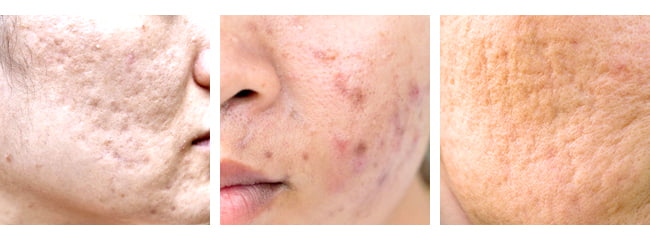
Acne scars are usually products of pimple or acne that are formed too deep in the skin layer. It can be either darkened, discoloured, raised or depressed. If not treated the right way, acne scars take a long time (if not forever) to disappear.

Acne scars first starts with the blocking on our pores. Naturally, our skin will produce oil called sebum to hydrate our skin and protect it against the negative impacts of sun. As dust and dead skin cells accumulated over the skin, they block the oil glands completely.
The excessive sebum under the skin is infected by the dead skin cells and dust, thus causing swelling – also called pimples. The pimple will cause a lesion in the skin.
When our skin experience breaks in the tissue wall, it secretes collagen in attempt to repair these lesions. However, the collagen build up may not be as smooth as the skin before the break. It may be darker, harder and in different texture than the rest of the skin. The damaged skin tissue will become pigmented over time, causing the appearance of a scar.
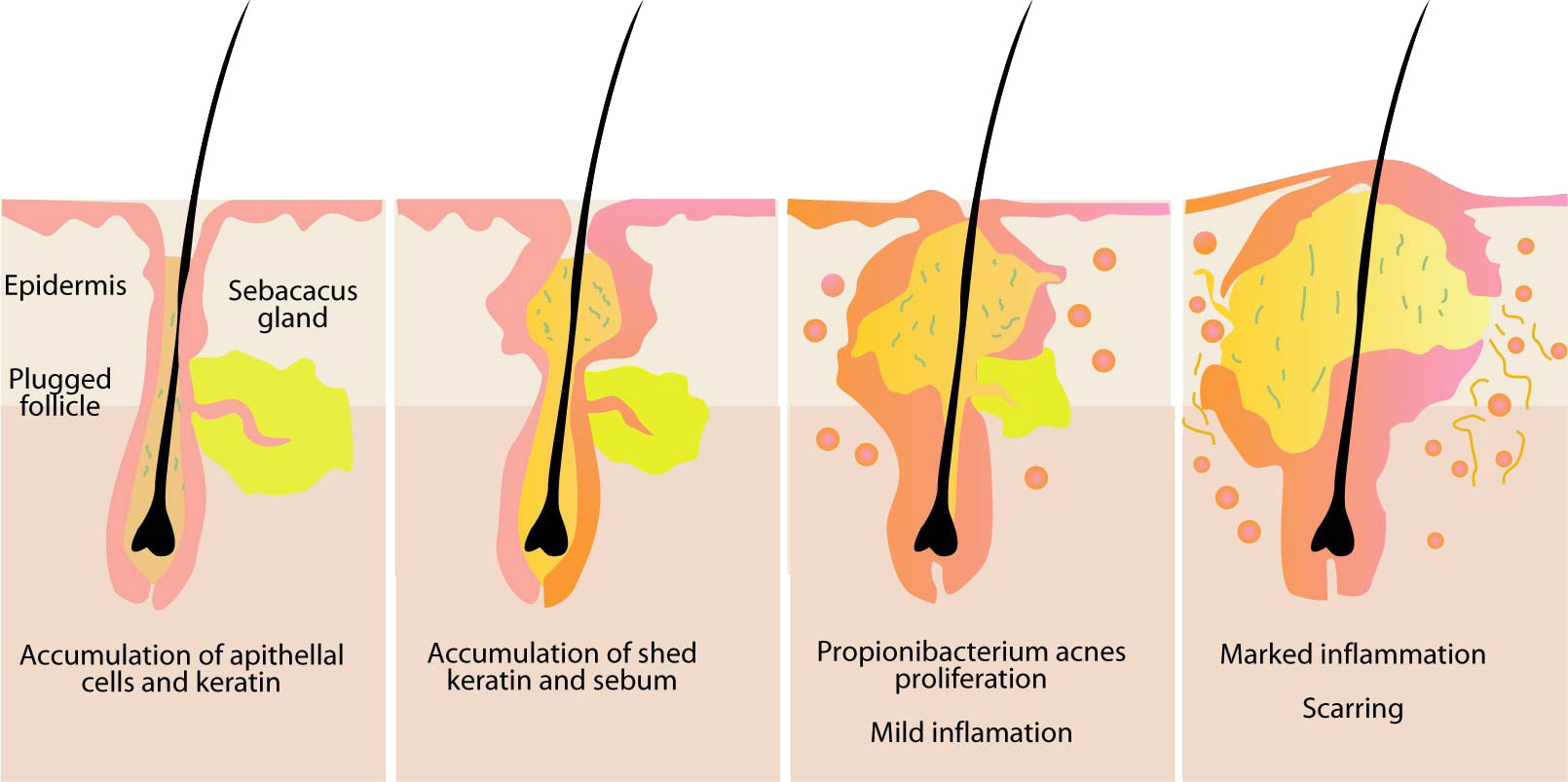
Keloid scar is also known as raised scar. Keloid scarring is a result of chronic inflammation – which means the scar is deep within the reticular dermis layer of the skin. When the lesion reaches that deep, the skin will release collagen to help ‘repair’ the skin wall. Keloid is formed when the skin produces an excessive tissue to heal the wound. This causes the part to elevate higher than skin surface.
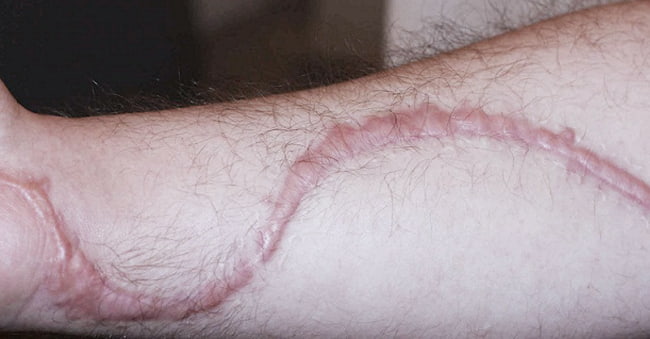
Depressed scarring is concave in the skin layer. There are two common types of depressed scarring; icepicks and boscar. Icepick scars are the small holes in your skin whereby boxcar are usually round or oval. Depressed scarring happens when the skin doesn’t heal naturally to the skin lesion. It created fibrous strain underneath the skin. The strain pulls down the skin, causing it to concave.
Acne scar removal process differs depending on the types of the scar. Thus, to ensure you get the best solution for your condition, it’s best to know their type.
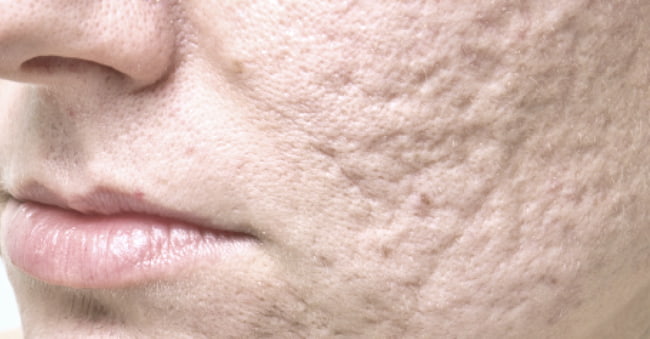
If you have the tendency to develop scar, it is highly likely to experience the issue. Especially when it comes to keloid, this information is very important.
If your acne is not treated properly when it starts, the chances of scarring is very high. Seeking professional help is recommended to prevent the condition from getting worse.
Picking or touching the acne will induce serious trauma to the skin as the bacteria from our hands will spread into the open wounds. The bacteria will then accumulate under the skin, causing more problems.
A rigorous cleansing routine can help prevent acne from forming, thus reducing the chances of having acne scars.
Do not touch or pick your acne to avoid the bacterial infection or causing more trauma to your skin.
Avoid the sun or wear sunblock whenever you go out of the house. The exposure to sunlight can alter your skin tones, making the scars more prominent.
Seek professional help in the start of your acne problem. We can help you prevent acne before it gets worse.
Use topical lotions containing Vitamin C, glycolic acid or retinol. Vitamin C is known to provide beneficial needs for skin health and glycolic acid is beneficial in exfoliating dead skin cells. Whereas, retinol is well known for its healing properties.
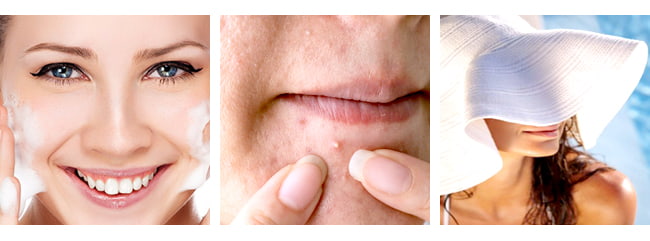
Honey and lemon have amazing skin lightening ability that can make acne scars and pigmentations less visible to the naked eyes.
Tea Tree oil has long been known for its cleansing power. A drop of tea tree oil on the surface of the skin can help retain the moisture within and keep bacterias away.
Known of its healing properties, aloe vera can help speed up the healing process of the wound. It also moisturises the skin.
If your skin is often exposed to the cruel sun, consuming vitamin A can help to avoid wrinkles and scarring. Vitamin E and C helps in healing and repairing skin tissues. Vitamin C also boosts the production of collagen needed for skin repairing.
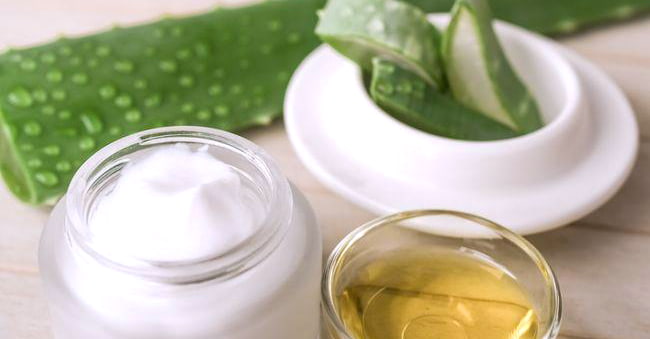
Be the first to know about our time-limited, exclusive promos
